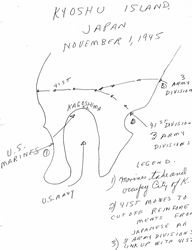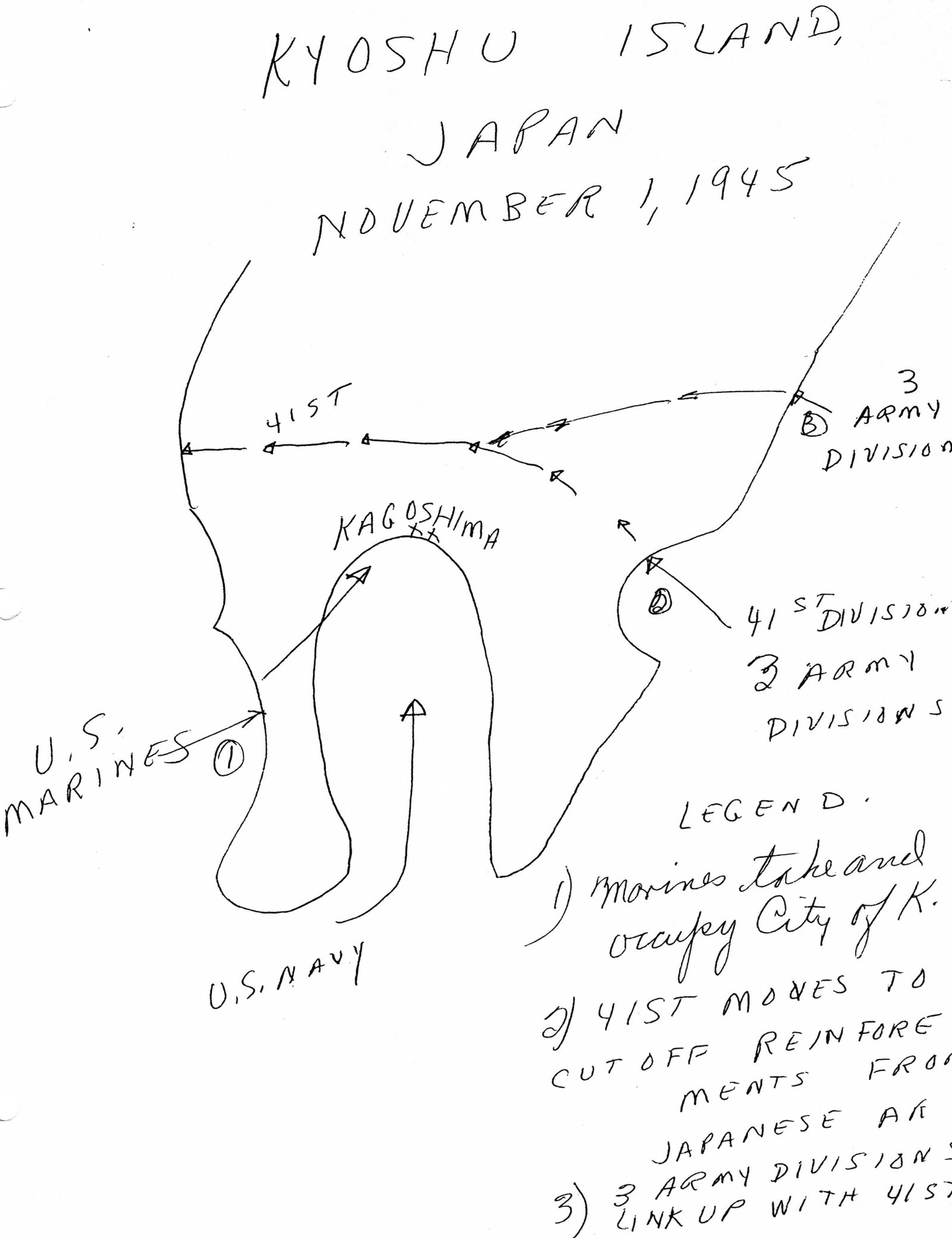Chapter 20
On Justification for the Atomic Bomb…
Hiroshima lay in a basin similar to the city of Los Angeles with mountains on three sides. When the bomb exploded at 7,000 feet, the hot wind traveled at supersonic speed toward the mountains and then ricocheted to the city catching the population outside their bomb shelters. At this point it may be the right time to discuss the bomb, its effect, the reasons for using it and ramifications.
There have been countless books and articles written about that event. By and large most authors condemned the use of the bomb. Some writers objected for theological reasons, some for humanitarian reasons, and others for political reasons. Very few writers discussed the war from the point of view of the men fighting the war, the men who died every day the war went on.
As late as July, 1945, the Allies meaning the United States, China, Great Britain, Australia, Holland and India were suffering a huge amount of casualties; some historians estimated as many as 7,500 per day. Japan was far from being defeated. True, its navy was reduced to a few ships and its air force consisted mainly of airplanes flown by suicide-prone pilots. But its army was still intact. Its strength on Japan proper was placed at two million men; in Korea, Formosa (Taiwan), China there were over two millions; in French Indo-China (Vietnam), Thailand and Burma, over 200,000; in Indonesia and The Philippines, over 300,000; in the by-passed Southern Pacific Islands well over 100,000 still roamed the jungles.
The U.S. Navy was losing one ship per week; the British and Indian armies were fighting in Burma; The Philippines and Okinawa had still not been pacified; fighting was still going on in the Solomon Islands, 1,500 miles from Japan. There’s no way to estimate the Chinese casualties. In fact, Great Britain was already planning the invasion of Malaya in September 1945. So Japan still showed much fighting ability.
Some historians insist that Japan had already approached Russia with overtures of peace. That is correct. The terms included the right to keep conquered lands. The idea was never taken seriously by the Allies.
I leave it to Secretary of War, Henry Stimson, to further instruct the readers concerning the war’s last days.
“As we understood the situation in July 1945, there was a very strong possibility that the Japanese Government might determine upon resistance to the end, in all areas of the Far East under its control. In such an event the Allies would be faced with the enormous task of destroying an armed force of five million men and five thousand suicide aircraft, belonging to a race that had already amply demonstrated its ability to fight literally to the death.
The strategic plans of our armed forces for the defeat of Japan as they stood in July had been prepared without reliance upon the atomic bomb, which had not yet been tested in New Mexico. We were planning an intensified sea and air blockade and strategic air bombing through the summer and early Fall, to be followed on November 1 by an invasion of the southern island of Kyushu. This would be followed in turn by an invasion of the main island of Honshu in the spring of 1946. The total U.S. military and naval force involved in this grand design was of the order of five million men.
Let me interrupt the narrative.
I have drawn a map of the invasion of Kyushu Island scheduled for November 1, 1945. The reader will notice that the Marines were given the dangerous job of taking the city, a major port and industrial center. The 4ls Division (mine) along with two others would have had the mission of cutting the peninsula off from reinforcements most likely rushed in by the Japanese army. It would have been a fight to the finish because the Japanese soldiers as well as the civilians would have fought to the last survivor. After so many years I still shudder at the thought of it! I have already described the prevalence of bunkers in buildings. I forgot to add that there existed larger bunkers on every major street intersection. The large Bay would then have become the staging area for the invasion of Honshu Island in the following spring. The area could easily have accommodated the entire American Pacific Fleet. The Secretary continued with his assessment:
“We estimated that if we should be forced to carry this plan to its conclusion, the major fighting would not end until the latter part of 1946, at the earliest. I was informed that such operations might be expected to cost over a million casualties to American forces alone. Additional large losses might be expected among our Allies and, of course, if our campaign were successful and if we could judge by previous experiences enemy casualties would be much larger than ours.
It was already clear in July that even before the invasion we should be able to inflict enormously severe damage on the Japanese homeland by the combined applications of conventional sea and air power. The critical question was whether this kind of action would induce surrender. It therefore became necessary to consider very carefully the probable state of mind of the enemy and end his will to resist.”
Stimson wrote a memorandum to the President on July 2, 1945 on the proposed program toward Japan.
1) The plans of operation up to and including the first landing have been authorized and the preparations for the operation are now actually going on;
2) There is reason to believe that the operation for the occupation of Japan after the landing may be very a very long, costly and arduous struggle on our part. The terrain, much of which I have visited several times, has left the impression on my memory of being one that would be susceptible to a last ditch defense such as been made on Iwo Jima and Okinawa. The home islands are very much larger than either of those two places.
3) If we once land on the main islands and begin a forceful occupation of Japan, we shall probably have cast the die of last ditch resistance. The Japanese are highly patriotic and certainly susceptible to calls for fanatical resistance to repel an invasion. Once started in actual invasion we shall in my opinion have to go through with an even more bitter fight than we had with Germany. We shall incur the losses incident to such a war and we shall have to leave the Japanese Islands even more thoroughly destroyed than was the case with Germany.”
The Secretary goes on to question whether it would be worthwhile for the U.S. to give Japan a warning, thus giving it time to think about surrender. He then wonders if a demonstration of the bomb’s destructive power would serve the same purpose. But since the country only had enough materials for two bombs, the decision was made to drop them on Hiroshima on August 6 and on Nagasaki on August 9. After much deliberation among the Japanese commanders and politicians failed to produce a decision, the Emperor settled matters by agreeing to peace terms. And that’s how your grandpa lived to a ripe old age. May I say one final word on the subject?
President Truman was duty bound to use every weapon at his disposal to end the war and prevent more American casualties. He could not, in good conscience, ignore a weapon that could end hostilities. He had to use it. It was not the dropping of the bomb that was immoral, it was what happened after the war when the leading powers, with the help of scientists of all nations, continued to develop more dangerous weapons such as the hydrogen bomb and intercontinental missiles some of which carried as many as ten warheads, capable of hitting ten different targets and obliterating every one of them. When will the human race ever destroy its nuclear arsenals? I don’t know but I pray and hope that future generations become wiser than the previous generations and eradicate them once and for all, before the weapons eradicate the human race!
I hope and pray that every Charest child studies and remembers this story. Grandpa possibly participated in the last major war on this suffering planet. I feel at times that the sacrifices and lives we lost were in vain, especially when I perceive that the world’s leaders are still uncaring and corrupt, that the munitions makers and bankers still profit off the misery of the working classes. Then I think of all my wonderful family members, children, grandchildren and great- grandchildren. I smile and I realize that there is my reward!

